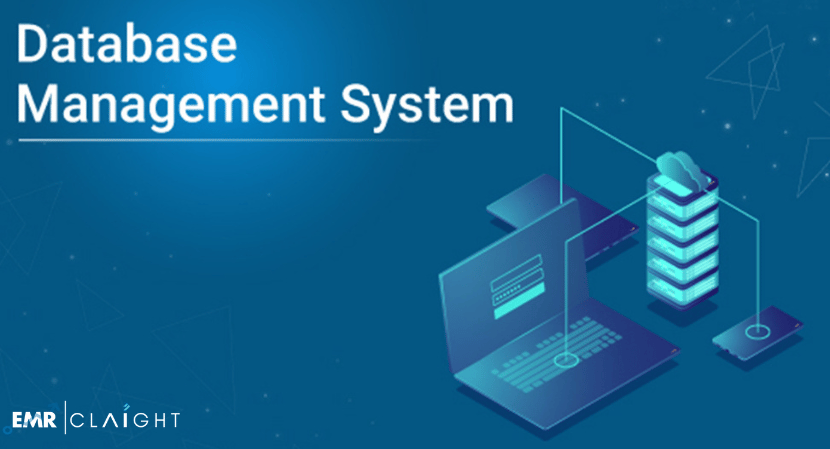In today’s dynamic business landscape, the role of Human Resources (HR) has evolved significantly. Companies recognize that effective HR services are crucial for organizational success. This article will delve into the concept of HR services, their importance, various types, and how organizations can leverage them for growth and development.
What is HR Service?
HR service refers to the range of activities and functions that human resources departments provide to support an organization’s workforce. This includes recruitment, employee relations, training and development, performance management, compliance, and more. The primary goal of HR services is to enhance employee satisfaction and productivity while ensuring that the organization operates within legal and ethical boundaries.
The Importance of HR Services
HR services are vital for several reasons:
1. Talent Acquisition and Management
One of the primary functions of HR services is talent acquisition. This involves attracting, recruiting, and retaining skilled employees who fit the organization’s culture and values. Effective HR services streamline the hiring process, ensuring that the right candidates are selected for the right positions. Moreover, managing talent involves ongoing development, performance evaluations, and succession planning, all of which are critical for long-term organizational success.
2. Employee Development
HR services play a crucial role in employee development. This includes providing training and development programs that help employees enhance their skills and advance in their careers. Investing in employee development not only improves job satisfaction but also boosts overall productivity and contributes to a positive workplace culture.
3. Compliance and Risk Management
Organizations must comply with various labor laws and regulations. HR services ensure that the company adheres to these legal requirements, thereby reducing the risk of lawsuits and penalties. This includes managing employee records, ensuring workplace safety, and maintaining compliance with equal opportunity laws.
4. Employee Engagement and Retention
Engaged employees are more productive and committed to their organizations. HR services focus on fostering a positive work environment through various initiatives such as employee recognition programs, feedback mechanisms, and engagement surveys. By understanding employee needs and addressing concerns, organizations can improve retention rates and reduce turnover.
5. Conflict Resolution and Employee Relations
HR services are essential in managing employee relations and resolving conflicts. This includes mediating disputes, addressing grievances, and ensuring a harmonious workplace. By providing clear policies and support systems, HR can help maintain a positive organizational culture.
6. Workforce Planning and Analytics
Effective HR services involve strategic workforce planning, which ensures that the organization has the right number of employees with the right skills at the right time. HR analytics help organizations make data-driven decisions regarding recruitment, retention, and employee development, ultimately leading to better business outcomes.
Types of HR Services
HR services can be categorized into several key areas:
1. Recruitment and Staffing Services
Recruitment and staffing services encompass the processes involved in attracting, selecting, and onboarding new employees. This includes job postings, candidate screening, interviewing, and background checks. Many organizations also utilize Applicant Tracking Systems (ATS) to streamline the recruitment process.
2. Training and Development Services
Training and development services focus on enhancing employees’ skills and knowledge. This can involve onboarding programs for new hires, ongoing professional development, leadership training, and compliance training. Organizations often tailor these programs to meet specific business needs.
3. Payroll and Benefits Administration
Managing payroll and benefits is a critical HR service. This includes processing employee salaries, managing deductions, and administering benefits programs such as health insurance, retirement plans, and paid time off. Accurate payroll management ensures employee satisfaction and compliance with tax regulations.
4. Performance Management
Performance management services involve setting performance expectations, conducting evaluations, and providing feedback. This process helps align employee performance with organizational goals and fosters a culture of continuous improvement.
5. Employee Relations Services
Employee relations services focus on maintaining a positive relationship between the organization and its employees. This includes addressing employee grievances, managing disciplinary actions, and fostering a supportive work environment.
6. HR Compliance and Risk Management
HR compliance services ensure that the organization adheres to labor laws, regulations, and internal policies. This includes conducting audits, managing employee records, and providing training on compliance-related topics.
7. Workforce Planning and Strategy
Workforce planning services involve analyzing current workforce capabilities, forecasting future needs, and developing strategies to meet organizational goals. This may include succession planning and talent management initiatives.
How to Leverage HR Services for Organizational Growth
To maximize the benefits of HR services, organizations should consider the following strategies:
1. Invest in Technology
Utilizing HR technology can streamline HR processes, improve efficiency, and enhance data management. Human Resource Information Systems (HRIS) can help manage employee records, payroll, and performance evaluations, allowing HR professionals to focus on strategic initiatives.
2. Focus on Employee Experience
Creating a positive employee experience is essential for engagement and retention. Organizations should regularly seek feedback from employees through surveys and focus groups, using this information to improve policies, benefits, and work conditions.
3. Provide Continuous Training and Development
Organizations should prioritize continuous learning and development opportunities for their employees. This not only enhances employee skills but also fosters loyalty and reduces turnover. Offering mentorship programs, workshops, and online courses can help employees grow within the organization.
4. Enhance Communication
Effective communication is key to successful HR services. Organizations should foster open lines of communication between HR and employees, encouraging feedback and collaboration. Regular meetings, newsletters, and digital platforms can facilitate communication.
5. Develop a Strong Company Culture
A positive company culture attracts top talent and enhances employee satisfaction. HR services should focus on promoting values and behaviors that align with the organization’s mission. This includes recognizing and rewarding employees who exemplify the desired culture.
6. Measure Success and Adapt
Organizations should regularly measure the effectiveness of their HR services. This can be done through key performance indicators (KPIs) such as employee turnover rates, satisfaction surveys, and productivity metrics. By analyzing these results, organizations can identify areas for improvement and adapt their HR strategies accordingly.
Challenges in HR Service Delivery
Despite the importance of HR services, organizations often face challenges in their delivery. Some of these challenges include:
1. Changing Regulations
The legal landscape surrounding employment and labor laws is constantly evolving. HR departments must stay informed about changes to ensure compliance, which can be time-consuming and complex.
2. Technological Advancements
While technology can enhance HR service delivery, it also presents challenges. Organizations must invest in the right tools and ensure that HR staff are trained to use them effectively.
3. Talent Shortages
Many industries are experiencing talent shortages, making it difficult for organizations to find qualified candidates. HR services must adapt to this reality by refining recruitment strategies and enhancing employee retention efforts.
4. Employee Expectations
Today’s employees have higher expectations regarding work-life balance, career development, and workplace culture. HR services must address these expectations to attract and retain top talent.
5. Cultural Diversity
As organizations become more globalized, managing a diverse workforce presents challenges. HR services must promote inclusivity and equity while addressing the unique needs of employees from different backgrounds.
The Future of HR Services
As we look ahead, the future of HR services in UK is likely to be shaped by several key trends:
1. Increased Use of AI and Automation
Artificial intelligence (AI) and automation are set to revolutionize HR services. From recruitment to performance management, these technologies can streamline processes, enhance decision-making, and reduce administrative burdens.
2. Focus on Employee Well-Being
Organizations are increasingly recognizing the importance of employee well-being. HR services will need to provide holistic support that encompasses physical, mental, and emotional health.
3. Remote Work Solutions
The rise of remote work has transformed HR services. Organizations must adapt their HR strategies to support remote employees, including virtual onboarding, communication tools, and remote performance management.
4. Data-Driven Decision Making
HR analytics will play a crucial role in shaping future HR services. Organizations will increasingly rely on data to inform their decisions, from recruitment to employee engagement strategies.
5. Continuous Learning and Development
The emphasis on continuous learning will continue to grow, with organizations investing in training programs that adapt to changing business needs and employee expectations.
Conclusion
HR services are essential for the success and growth of any organization. By understanding the various types of HR services and their importance, businesses can leverage these resources to enhance employee satisfaction, improve productivity, and foster a positive workplace culture. As the landscape of HR continues to evolve, organizations must remain adaptable, embracing new technologies and strategies to meet the needs of their workforce.
For comprehensive HR service solutions, consider exploring Equals HR, which offers tailored support to meet your organization’s specific needs.


